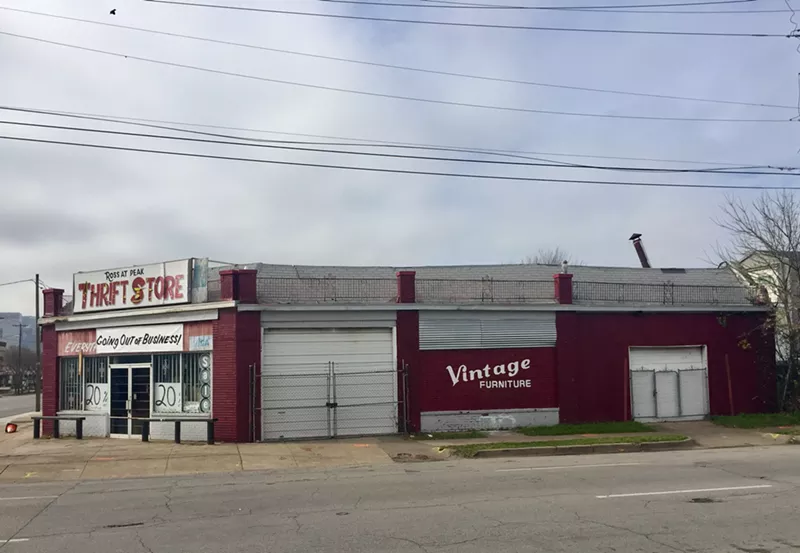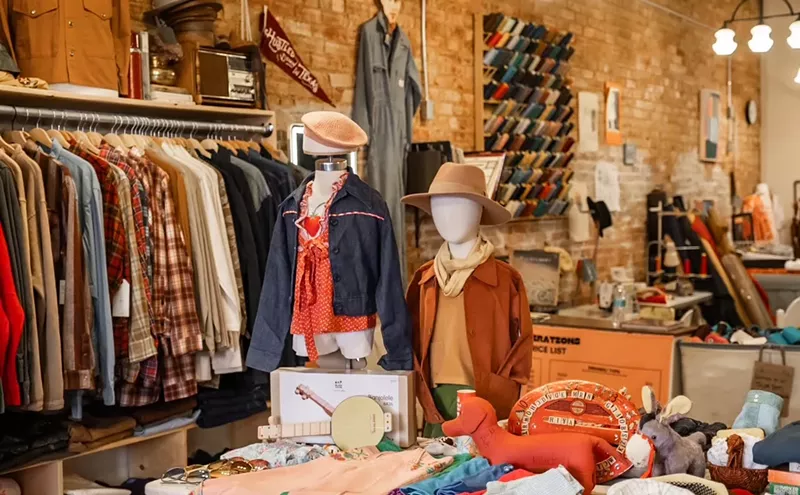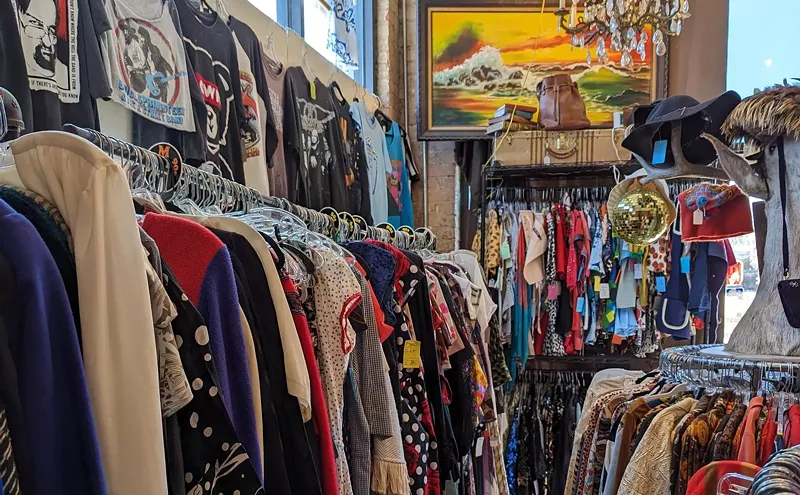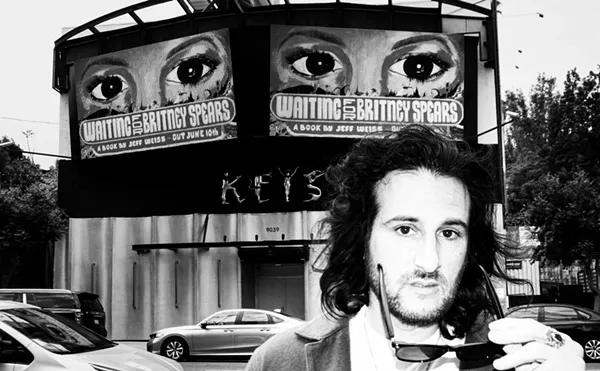Building owner Mitchell Rasansky says proprietors painted the white and yellow script proclaiming everything must go above the doors when they opened in the '60s. The words made it seem as though the shop was forever going out of business.
So when an Old East Dallas insider lunching near the Design District overhears, “Did you know the thrift shop at Ross and Peak is going out of business,” she might smirk or even interrupt. Something like: “No, no, no. That sign has been there forever.”
Later that afternoon, though, a word with the manager confirms it. “Yes, we are closing, because the building owner is selling to a developer. Townhomes,” she grumbles and scurries off. There's furniture to manhandle.
Rasansky’s Main Street Ross Partners LTD has owned The Ross at Peak Thrift Store property since 2003. The former Dallas City Council member, who rose to real estate titan status since his first property purchase on Ross in 1959, is now in his 80s.
He owns several properties on and near Ross Avenue, he says — for example the other aging building at 4255 Ross next to The Ross at Peak Thrift Store, whose name makes him scoff.
“It’s a trendy, semi-antique [selling] place for professional interior designers,” he says, “not a thrift shop.”
The couple running it works hard to acquire beautiful pieces, he says, and they are great at what they do.
Pro interior designers don’t mind exceeding thrifty prices for furniture at the shop, because they refurbish them and sell to clients at a nice markup.
The store is closing, Rasansky confirms, but it might move to another one of his properties not so far away, though he adds no specifics.
Customers agree that despite its name and looks, the shop was really a designer-focused concept.
Jack Lakes, who once lived in the neighborhood, showed up Wednesday to check out the last-days sale. The items were generally more expensive than he cared to spend.
“But people who could afford it loved it. It was kitschy. Austin-like. They carried stuff you didn’t find elsewhere,” he says. “But as the area gets more gentrified, people don’t want resale when they can buy similar-looking untouched furniture [for their mint-fresh townhome].”“But people who could afford it loved it. It was kitschy. Austin-like. They carried stuff you didn’t find elsewhere." – Jack Lakes
tweet this
Despite his lack of actual purchases, Lakes waxes nostalgic about The Ross at Peak Thrift Store.
“It’s sad,” he says. “It’s been here so long, seen the '50s and '70s and '80s.”
He will miss scanning the trendy, midcentury Mad Men-era furniture, the orange lacquer and shaggy textures of troubled post-hippy décor. But he gets it. The neighborhood, so close to downtown, was bound to change.
Although townhomes and refurbished “boutique” apartments seemingly have proliferated the area, Rasansky says he has no plan to sell the property to a developer of townhomes. (Then he launches into stories about Ross Avenue’s rich history, how a boxing studio stood in place of this so-called thrift store, and a guy who sold radios before TVs were even a thing. A mansion inhabited by a man called Rudy, had a Hugh Hefner-esque “den” upstairs.)
Rasansky’s real estate companies total 27 under various names, according to corporate registration records. Major action is in store for many along the Ross corridor leading into the Arts District. But he couldn’t tell the future, he says. He just loved the neighborhood, so he scooped up a bunch of it during his career.
Ross Avenue downtown shone when Trammell Crow poured millions into the Dallas Arts District’s revitalization. When that commenced, anyone who could hike a little less than two miles could walk from Ross-Lowest Greenville Avenue to the glowing, revitalized district.
Problem: Trekking that two miles in 2011 would have meant risking life, health or pocketbook. That is the year Dallas police data deemed Ross-Bennett and the closely surrounding areas as Dallas' most dangerous neighborhood. The area was loaded with countless substandard apartment buildings, open-air drug trade and prostitution.
Even now, Ross and Bennett isn’t an intersection anyone would want to wander at night, but Arts District director Lily Weiss told Dallas Innovates, an arts industry publication, that Ross “has the potential of being the next important boulevard in downtown because it’s a perfect east-west connection.”
Downtown 360 and the Arts District want to extend art-district zoning south to San Jacinto Street, making both sides of Ross a more pedestrian friendly experience, according to the groups’ websites.
Old East Dallas might lose Ross Peak Thrift, perhaps nonprofits, such as Promise of Peace Garden, and almost certainly older apartments in which families live affordably and send children to 1915-built James Fannin Elementary. (It and some other structures are protected as landmarks).
Evidence of transformation — massive formations of $400,000 townhomes and such — is sprouting like a garden nourished by deafening heavy machinery, dust clouds, cracked sidewalks, vacant buildings and port-a-potties.
The dream is to transform the street with stylish multifamily living developments, less crime, posh restaurants, swanky retailers and offices, and more vibrant street life in general.
That is, unless you are homeless and living in Munger Park or you own an old laundry, or, say, a real thrift store or are one of those families dwelling in a rundown, old residence. We don’t mean you.












